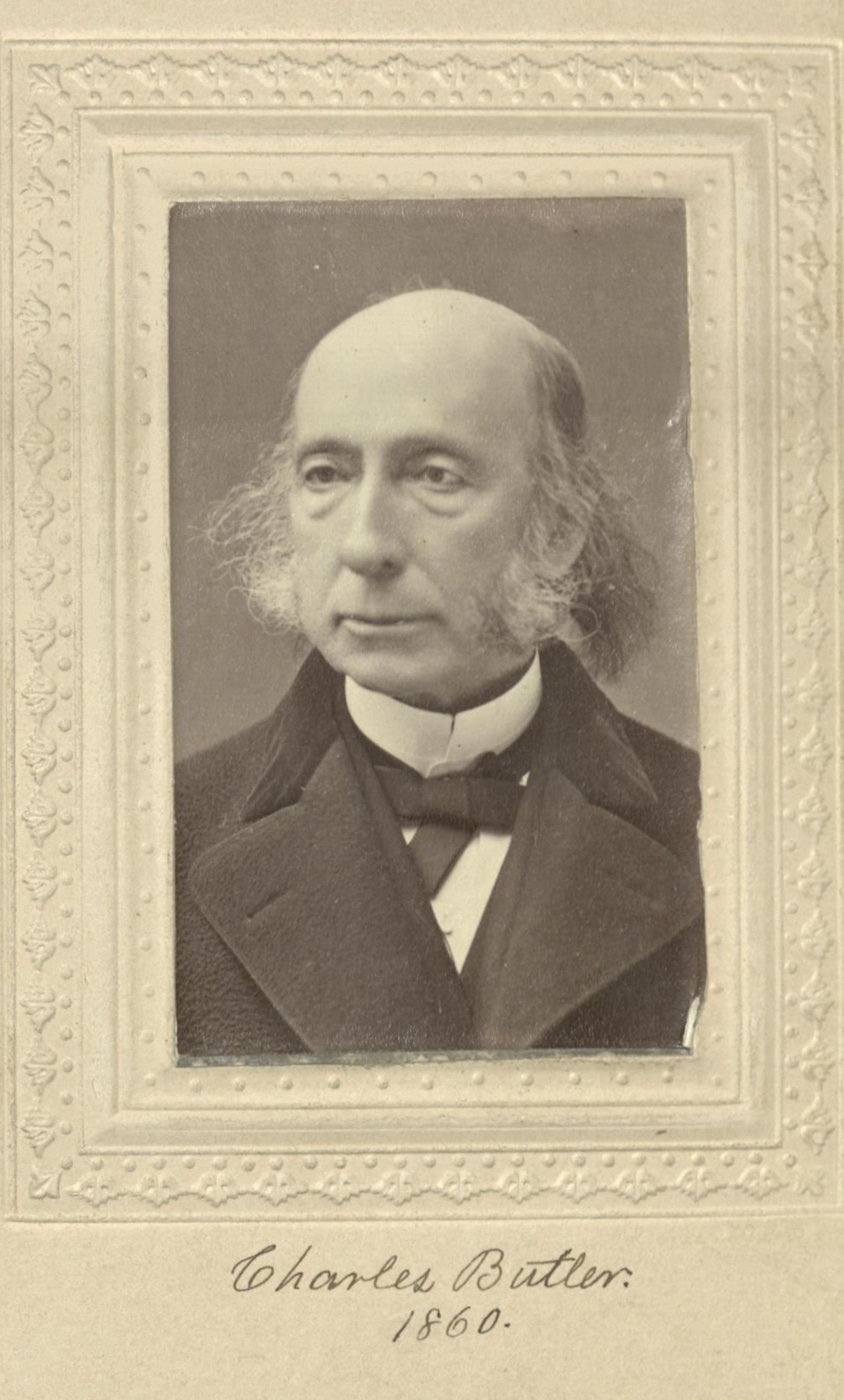President, Union Theological Seminary
Centurion, 1860–1897
Born 15 February 1802 in Kinderhook Landing, New York
Died 13 December 1897 in New York (Manhattan), New York
Buried Woodlawn Cemetery , Bronx, New York
, Bronx, New York
Proposed by Joseph N. Balestier
Elected 3 March 1860 at age fifty-eight
Archivist’s Note: Uncle of Benjamin F. Butler and William Allen Butler; great-uncle of Charles Butler, Willard Parker Butler, and Edmund Dwight
Proposer of:
Seconder of:
Century Memorial
Charles Butler, who died at the age of ninety-six [sic], was one of the oldest and most honored of our members, and has left a record of high and wide beneficence rarely excelled. His public gifts were numerous and munificent, but the world knows nothing of
“That best portion of a good man’s life,
His little, nameless, unremembered, acts
Of kindness and of love,”
which stand to his credit on the Recording Angel’s books. He saw the beginnings of the greatness of the country, was associated with many of its greatest men, among whom may be mentioned his brother, Benjamin F. Butler, a member of Jackson’s and Van Buren’s Cabinets, one of the revisers of the New York Statutes, and a leader of the New York Bar. Charles Butler achieved honorable distinction as a lawyer in early life, and with wonderful prophetic vision predicted, when they were merely frontier villages, the future of the greatest cities of the West, which he largely assisted to develope. He was one of the first organizers of the Chicago and North Western, the Michigan Southern, the Chicago and Rock Island, and the St. Louis, Terre Haute and Alton Railroad Companies, and promoted and advanced many other important interests in the West, in whose growth and prosperity he was a firm believer.
He was a founder of the Protestant Half-Orphan Asylum, of the Union Theological Seminary, of the Union League Club, and was a member of the Council of the University of the City of New York for over sixty years. His gifts to these institutions were princely, and his interest in them continued to the last day of his life.
He was during his long life an exemplary Christian, a high minded and public-spirited citizen, a wise counsellor, a kindly neighbor, and has left an unvarying record of usefulness and devotion to duty which may well serve as an example to all who follow him.
Henry E. Howland
1898 Century Association Yearbook

